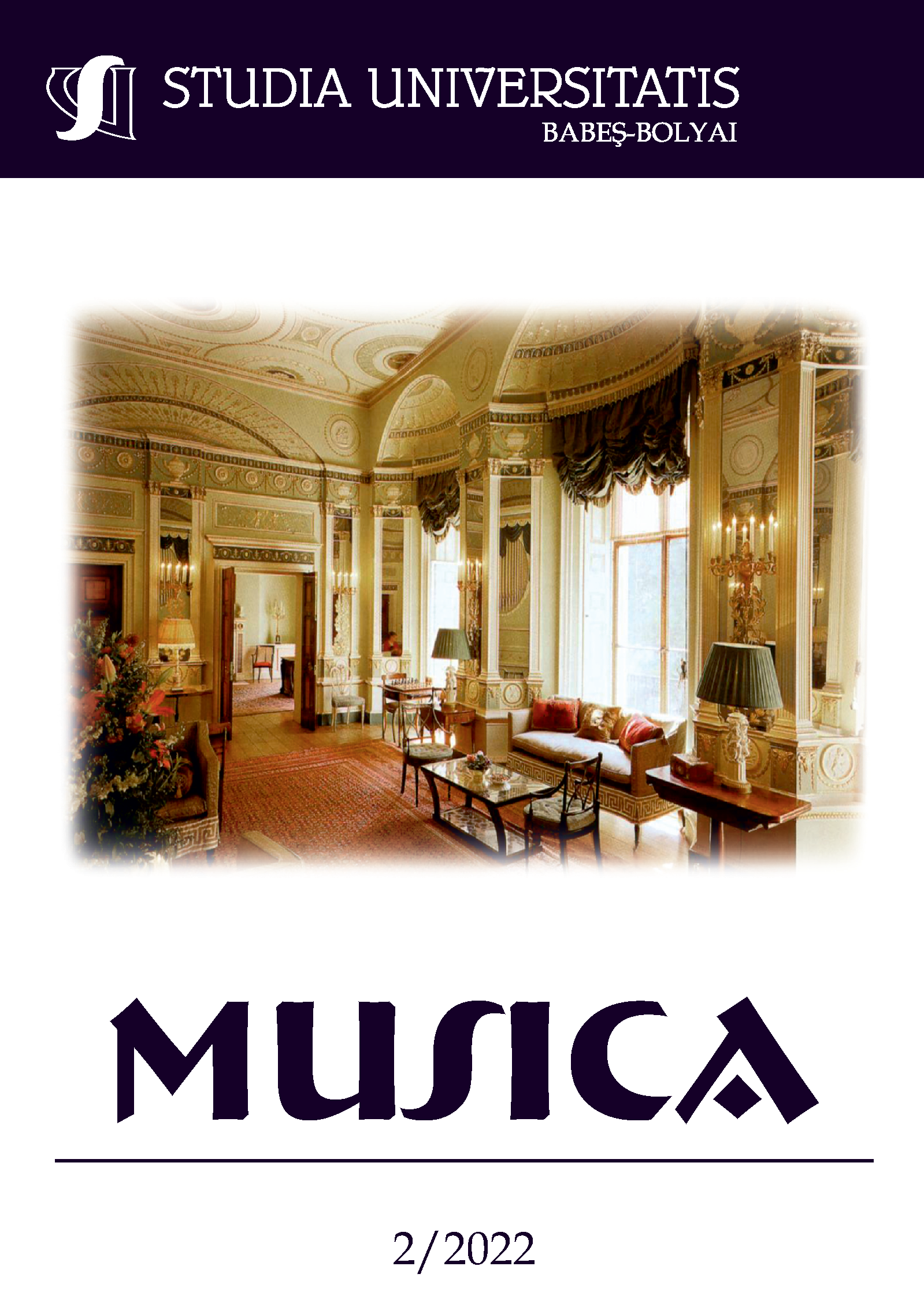AN EVIL LETTER, AND THE DESTINIES OF THE FORGOTTEN PASSACAGLIA. THE TWILIGHT OF THE THIRD SYMPHONY “OVID” BY SIGISMUND TODUȚĂ
DOI:
https://doi.org/10.24193/subbmusica.2022.2.04Keywords:
originality, paraphrase, pastiche, restorations, rehabilitations, re-editingAbstract
The author does not intend to write a booklet about the Symphony No. 3 “Ovid” (1957) by Sigismund Toduță, but rather to complete the missing pieces of its history. Still in 2004, the manuscript of the symphony’s finale was still missing. With its discovery in 2013, research confirmed its uniqueness and originality. Now, in 2022, at the 30th anniversary of the establishment of the Toduță Foundation, we reveal those derogatory remarks that led to the ‘amputated’ publication of the Passacaglia followed by the symphony’s fade into oblivion. All began with a young university assistant from Bucharest who addressed a letter to the only Romanian citizen with a PhD in music (Rome, 1933), the nationally and internationally recognized composer, awarded by George Enescu himself. How did this 28 years old juvenile dare to write to the 51 years old master in such a defamatory tone? If it was part of a political task, whom did it serve? Who had anything to gain by removing from the Romanian musical heritage this remarkable work, composed on the two-millennium anniversary of Ovid’s birth - the adored but banished poet? Would it be fair to respect the composer’s wish and forget this troublesome Passacaglia? Wouldn’t it be a mistake against the creation itself, which once born, deserves publicity? With these questions this paper reconstructs the events, still leaving in the twilight the truth behind the faces of Ovid.References
Banciu, Ecaterina, History of a forgotten Passacaglia: the Symphony no.3 “Ovid”, finale, by Sigismund Toduţă, in STUDIA UBB MUSICA, LXIII, 2, 2018 (p. 297 – 309). DOI:10.24193/subbmusica.2018.2.20
Edgar, Andrew and Sedgwick, Peter, Key Concepts in Cultural Theory, published by Routledge, London, 2008. https://www.routledge.com/Cultural-Theory-The-Key-Concepts/Edgar-Sedgwick/p/book/9780415399395?gclid=EAIaIQobChMIu9bcpIKp-QIVls13Ch2dSA5xEAAYASAAEgKA6vD_BwE Guide de la musique symphonique. Sous la direction de François-René Tranchefort, Fayard, 1986.
Herman, Vasile, Forme variaţionale în muzica românească contemporană – Variational Forms in Contemporary Romanian Music, in „Lucrări de muzicologie” (Musicology Papers), vol. 22, Editura MediaMusica, Cluj-Napoca, 2003.
Sigismund Toduță Foundation, Sigismund Toduță - revelations, documents, testimonies [Fundația Sigismund Toduță, Sigismund Toduță – destăinuiri, documente, mărturii], Casa cărții de Știință, Cluj-Napoca, 2008. Horton, Julian: Postmodernism and the Critique of Musical Analysis, Jurnal Article, The Musical Quarterly, vol. 85, No.2, Oxford University Press https://www.jstor.org/stable/3600916
Tarasti, Eero, Semiotics of Classical Music: How Mozart, Brahms and Wagner talk to us, Walter de Gruyter Gmbh, 2012. https://www.academia.edu/33376690/Key_Concepts_in_Cultural_Theory_Ke_BookZZ_org_1_1_
https://dexonline.ro/definitie/originalitate
https://en.wikipedia.org/wiki/Sagrada_Fam%C3%ADlia
https://koncertkalauz.hu/versenymuvek/bartok-bela-bracsaverseny/
Joseph Eybler and Franz Xaver Süßmayr
https://ro.wikipedia.org/wiki/Garabet_Ibr%C4%83ileanu
https://www.archeus.ro/lingvistica/CautareDex?query=pasti%C8%99%C4%83&lang=ro
https://ws-export.wmcloud.org/?format=pdf&lang=ro&page=Originalitatea formei
https://www.youtube.com/watch?v=q3f3-rgkbh4
https://www.academia.edu/33194620/Intertextuality_and_Interdiscursivity
Downloads
Published
How to Cite
Issue
Section
License
Copyright (c) 2022 Studia Universitatis Babeș-Bolyai Musica

This work is licensed under a Creative Commons Attribution-NonCommercial-NoDerivatives 4.0 International License.



